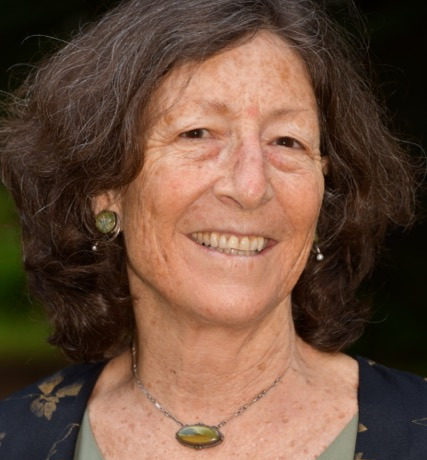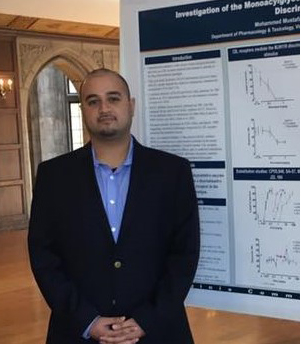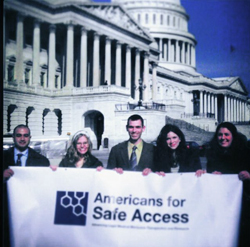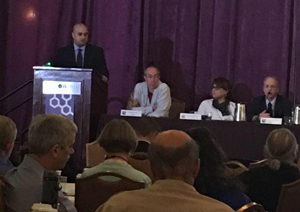ASA Activist Newsletter - November 2018
In the November 2018 Issue
- ASA Weighs in on Utah's Medical Cannabis Compromise Bill
- Certification Program Partners with International Standards Group
- Mexico’s Supreme Court Makes Personal Use and Cultivation Legal
- Join ASA at the MJBiz Conference in Las Vegas
- ASA Executive Director Delivers Keynote in Guam
- Free ASA Webinar on Method Validation Nov. 7
- ASA Webinar on Medicalization Now on Youtube
- PFC Welcomes Trish Flaster as New Global Board Chair
- PFC Director Named to ICCI Scientific Board
- Unity Conference Registration Opens this Month
- ASA Activist Profile: Mohammed Mustafa, Virginia
- Action Alert: Vote Medical Marijuana!
_______________________
ASA Weighs in on Utah's Medical Cannabis Compromise Bill
 Americans for Safe Access last month released its analysis of a Utah medical cannabis bill being touted as a compromise. The new measure scored marginally worse than the initiative it is ostensibly designed to fix. Utah Gov. Gary Herbert has said he will call a special session of the state legislature to address the issue.
Americans for Safe Access last month released its analysis of a Utah medical cannabis bill being touted as a compromise. The new measure scored marginally worse than the initiative it is ostensibly designed to fix. Utah Gov. Gary Herbert has said he will call a special session of the state legislature to address the issue.
On October 4, Utah legislators released draft text of legislation known as the Utah Medical Cannabis Compromise Bill. This bill was drafted in response to Proposition 2, a citizen-led initiative that would legalize the medicinal use of cannabis in Utah. ASA scored Prop 2 when the initiative was certified, giving it a score of 61.80% (309.02 out of 500 points) The Medical Cannabis Compromise Bill received a score of 57.87% (286.83 out of 500 points).
Scoring is based on the rubric used in ASA’s annual report, “Medical Marijuana Access in the United States.” ASA grades state medical cannabis programs in five categories: (1) Patient Rights and Civil Protections from Discrimination, (2) Access to Medicine, (3) Ease of Navigation, (4) Functionality and (5) Consumer Safety and Provider Requirements.
Unlike Proposition 2, the compromise bill requires distribution of medical cannabis through a central state pharmacy that would ship to local health departments for pick up by registered patients. The proposed bill would only single-dose oral or transdermal products, and access to extracted oils or dried cannabis flower would be prohibited except for patients who have “failed to substantially respond” to at least two of the allowed product types.
On the plus side, the compromise bill provides for stronger patient rights protections than Proposition 2 would if enacted, including protecting employees from discrimination for their use of medical cannabis.
“Americans for Safe Access supports any effort, whether led by citizens or lawmakers, to improve access to medical cannabis,” said David Mangone, Esq., Director of Government Affairs for Americans for Safe Access. “The compromise legislation creates serious issues of accessibility and functionality for patients, so Proposition 2 is the clear winner when it comes to access to medicine and helping patients suffering from debilitating conditions.”
Like many other states, Utah voters will have the opportunity to decide the future of their medical cannabis program on November 6, 2018.
More Information:
Detailed scoring rubric of the Utah compromise bill.
_______________________
U.S. Certification Program Joins Forces with International Standards Group
The cannabis industry will benefit from a new partnership between researchers and a global standards organization that will produce guidance for everything from cannabis cultivation to cosmetics.
 American Society for Testing and Materials (ASTM International) and the International Cannabis and Cannabinoids Institute (ICCI) announced the Memorandum of Understanding late last month. ICCI, located in the Czech Republic, is the first European partner for ASTM International’s cannabis committee, which has grown to more than 500 members worldwide in its first two years. The cannabis committee (designated D37 by ASTM), which includes businesses, laboratories, associations, governments, and others, was formally organized two years ago after requests from industry.
American Society for Testing and Materials (ASTM International) and the International Cannabis and Cannabinoids Institute (ICCI) announced the Memorandum of Understanding late last month. ICCI, located in the Czech Republic, is the first European partner for ASTM International’s cannabis committee, which has grown to more than 500 members worldwide in its first two years. The cannabis committee (designated D37 by ASTM), which includes businesses, laboratories, associations, governments, and others, was formally organized two years ago after requests from industry.
ICCI was co-founded by ASA to help remove barriers to access for patients globally by bringing together the current knowledge base for cannabis research. In 2016, ASA signed a licensing agreement with ICCI to offer its Patient Focused Certification (PFC) program around the globe.
 “To meet the pressing need for cannabis standards, we are pleased to be coordinating our resources and efforts with Americans for Safe Access’ Patient Focused Certification program into one activity under ASTM International, one of the world’s top standards organizations,” said Martin Masilko, ICCI Chief Operating Officer.
“To meet the pressing need for cannabis standards, we are pleased to be coordinating our resources and efforts with Americans for Safe Access’ Patient Focused Certification program into one activity under ASTM International, one of the world’s top standards organizations,” said Martin Masilko, ICCI Chief Operating Officer.
The organizations are prioritizing a cannabis cultivation standard, followed by standards related to cannabis cosmetics, as well as food supplements and extracts. ICCI’s involvement strengthens the committee’s collaborative efforts in medicinal and laboratory-related standards.
“ICCI’s global expertise in this fast-growing industry is well known,” said Ralph Paroli, Ph.D., the cannabis committee chairman and the director of R&D in measurement science and standards at the National Research Council of Canada. “ICCI’s engagement in this new committee will strengthen international standards development, identify gaps and prevent duplicative efforts.”
_______________________
Mexico’s Supreme Court Makes Personal Use and Cultivation Legal
 Personal use and cultivation of cannabis is now legal in Mexico, following a series of court rulings. On October 31, Mexico’s Supreme Court issued a pair of rulings that found the country’s ban on consuming cannabis to be unconstitutional.
Personal use and cultivation of cannabis is now legal in Mexico, following a series of court rulings. On October 31, Mexico’s Supreme Court issued a pair of rulings that found the country’s ban on consuming cannabis to be unconstitutional.
Those rulings are the latest in a series of decisions on safe access to cannabis and make it binding on all Mexican courts and jurisdictions. In Mexico, rulings become binding precedent when the Supreme Court rules the same way on a matter five times. The first that allowed a group to grow cannabis came in November 2015.
The high court’s ruling obligates the Mexican legislature to amend any laws that are in conflict. The incoming administration of Andrés Manuel López Obrador was already openly considering legalization. Future cabinet members of the new administration recently traveled to Canada to meet with government officials about how they have implemented a legal framework for adult use.
_______________________
Join ASA at the MJBiz Conference in Las Vegas

 Representatives from ASA and the Patient Focused Certification (PFC) program will be at the annual MJBiz conference in Las Vegas November 14-16.
Representatives from ASA and the Patient Focused Certification (PFC) program will be at the annual MJBiz conference in Las Vegas November 14-16.
ASA and PFC have just announced a joint project with A2LA to perform ISO 17025 and PFC assessments, so stop by the A2LA booth at #3568 to find out more about that. Some ASA folks are likely to be there, too.
ASA will be hosting a meet-and-greet event at the Yard House Bar, located inside the Linq hotel, on Thursday, Nov. 15 at 7pm. Come by and find out more about what ASA and PFC are doing to promote industry standards and expand cannabis access and education.
_______________________
ASA Executive Director Delivers Keynote in Guam as Part of Global Month
Co-Founder and Executive Director of ASA Steph Sherer is in Guam this month to deliver one of the keynote addresses at “Cultivating Change,” the third medical cannabis workshop sponsored by Grassroots Guam. The other keynote speaker is Nic Easley, CEO of 3C Consulting, who was profiled in the August newsletter.
 The Guam meeting was called to address delays and barriers to implementation of the 2014 KC Concepcion Compassionate Use Act, which established Guam's medical cannabis program. Sessions focused on regulatory and industry issues, as well as resources for patients.
The Guam meeting was called to address delays and barriers to implementation of the 2014 KC Concepcion Compassionate Use Act, which established Guam's medical cannabis program. Sessions focused on regulatory and industry issues, as well as resources for patients.
"Having worked closely with Americans For Safe Access in the past, I know what they can do to assist stalled programs and get the necessary resources to regulators," said Nic Easley. "Steph established the Patient Focused Certification program for exactly this purpose. Everyone on Guam can hear for themselves that this years-long delay is not insurmountable."
Sherer travels across the globe to assist governments in providing patients with the appropriate laws and regulations to have a successful medical cannabis industry.
Last month, Sherer traveled to South Africa, Czech Republic and Hong Kong. In South Africa, she met with world leaders to address how best to serve medical cannabis patients in their countries. In Hong Kong, she participated in the first Cannabis Investor Symposium, where leading cannabis business leaders and investment experts from around the world gathered to discuss the burgeoning industry.
_______________________
Free ASA Webinar on Method Validation Nov. 7
 On Wednesday, Nov. 7, join Patient Focused Certification Director Heather Despres, M.Sci. for “Method Validation – Not Just for Labs!” This webinar will review what method validation is, how method validation can be achieved, and how method validation is necessary for many different types of operations. We’ll also review how validation fits into a well-rounded quality system and discuss strategies for validating various processes. This webinar will be live on Wednesday, November 7, at 5:00pm Eastern. For more information about logging in, RSVP for this webinar at https://www.safeaccessnow.org/method_validation_webinar.
On Wednesday, Nov. 7, join Patient Focused Certification Director Heather Despres, M.Sci. for “Method Validation – Not Just for Labs!” This webinar will review what method validation is, how method validation can be achieved, and how method validation is necessary for many different types of operations. We’ll also review how validation fits into a well-rounded quality system and discuss strategies for validating various processes. This webinar will be live on Wednesday, November 7, at 5:00pm Eastern. For more information about logging in, RSVP for this webinar at https://www.safeaccessnow.org/method_validation_webinar.
_______________________
 ASA Webinar on Medicalization and the Patient Experience on Youtube
ASA Webinar on Medicalization and the Patient Experience on Youtube
Check out ASA’s YouTube channel for their latest upload -- last month’s free webinar with Michelle Newhart, PhD and William Dolphin discussing their groundbreaking new book, The Medicalization of Marijuana: Legitimacy, Stigma, and the Patient Experience. Learn what their research on mid-life patients in Colorado reveals about what it means to participate in a state medical cannabis program. Hear how patient experiences with medical cannabis fit with that of other medicines -- and don’t -- and how that's changing as medicalization advances alongside competing "recreational" definitions that complicate the issue. View the webinar at www.safeaccessnow.org/asa_live.
_______________________
PFC Welcomes Trish Flaster as New Global Board Chair

 ASA’s Patient Focused Certification (PFC) program this month welcomed a new Global Board Chair, Trish Flaster, M.Sci. In this role, Flaster will help PFC develop a global review board for industry standards, including pre-assessments and assessments, and support PFC ISO certification. Skilled in botanical and chemical experience, she has consulted in the cannabis industry on testing, supply chain, quality and research. Prior to that, Trish was a botanist for Celestial Seasonings developing new ingredient sourcing and quality-control analytical test procedures.
ASA’s Patient Focused Certification (PFC) program this month welcomed a new Global Board Chair, Trish Flaster, M.Sci. In this role, Flaster will help PFC develop a global review board for industry standards, including pre-assessments and assessments, and support PFC ISO certification. Skilled in botanical and chemical experience, she has consulted in the cannabis industry on testing, supply chain, quality and research. Prior to that, Trish was a botanist for Celestial Seasonings developing new ingredient sourcing and quality-control analytical test procedures.
_______________________
PFC Director Named to ICCI Scientific Board
 Heather Despres, M.Sci., Director of the Patient Focused Certification (PFC) program, was named this month to the Scientific Board of the International Cannabis and Cannabinoid Institute (ICCI). Despres will serve as ASA’s representative to ICCI.
Heather Despres, M.Sci., Director of the Patient Focused Certification (PFC) program, was named this month to the Scientific Board of the International Cannabis and Cannabinoid Institute (ICCI). Despres will serve as ASA’s representative to ICCI.
ICCI was co-founded by Americans for Safe Access to help remove barriers to access for patients globally by bringing together research in biomedicine, life sciences, and public policy to create a platform for sharing, exploration, and education. In 2016, ASA signed a licensing agreement with ICCI to offer its Patient Focused Certification (PFC) program around the globe. The PFC program was developed to address product safety and quality control standards for the medical cannabis industry.
_______________________
Unity Conference 2019 Registration Opens this Month
ASA will announce the theme for the 2019 National Unity Conference this month and open early-bird registration. To be held March 18-20 in Washington, D.C., the annual gathering brings together leading advocates, researchers, and policymakers for educational panels, citizen lobbying, and networking. Check the ASA website for upcoming details and look out for an email with more information coming soon!
_______________________
ASA Activist Profile: Mohammed Mustafa, Virginia

Activism takes many forms and finds many inspirations. For Mohammed Mustafa, interest in medical cannabis came from realizing a close family member who died from cancer could have eased the devastating effects of chemotherapy with cannabis, if it had been available. But treatment was in a D.C.-area hospital in the days before safe access.
"When I got older and discovered how cannabis can help with chemotherapy, I became determined to help other families with access," Mohammed says.
His academic background had always been science, mostly biology and psychology. As his interest in medical cannabis grew, he made study of the endocannabinoid system (ECS) the focus of a project while getting an Associate’s degree, then went on to a Bachelors. He is now enrolled in graduate school pursuing a Master’s degree and research on the ECS.

Mohammed got involved with advocacy in 2012 when he attended an ASA chapter meeting in San Francisco during a trip there and discovered there was a chapter in D.C., too. On his return to the D.C. area, he connected with the chapter and went to work on implementing the medical cannabis program the District Council had enacted in 2010. Together with other advocates, he helped expand the limited qualifying conditions and make it easier to obtain a doctor’s recommendation. When he started, D.C. had no recommendation forms for physicians, but lobbying the council made the difference.
Following that, Mohammed moved to Richmond, Virginia and helped found ASA's Safe Access Virginia chapter (pictured right at an early organizing meeting in 2013). They began lobbying the commonwealth’s General Assembly to defeat a bad bill that would have blocked safe access and got it tabled. The next year, they were back with patients and the families of children with seizure disorders and got an affirmative epilepsy law passed. In the past three years, he’s helped add regulated commercial cultivation to the law and expand who can qualify.
 As a pharmacologist in a behavioral lab working on cannabinoids, Mohammed sees his role as making sure advocates have talking points backed by science when they’re educating policy makers on how cannabis can treat pain, anxiety, and other conditions. He has presented at local and international cannabinoid science conferences and co-authored several peer-reviewed publications with prominent cannabinoid scientists such as Raphael Mechoulam.
As a pharmacologist in a behavioral lab working on cannabinoids, Mohammed sees his role as making sure advocates have talking points backed by science when they’re educating policy makers on how cannabis can treat pain, anxiety, and other conditions. He has presented at local and international cannabinoid science conferences and co-authored several peer-reviewed publications with prominent cannabinoid scientists such as Raphael Mechoulam.
“The medical cannabis industry is moving so much faster than science,” Mohammed says. “I want to bridge the gap by helping develop consistent cannabinoid medicines that are appropriate and address side effects.”
Mohammed is currently working on models of chemotherapy-induced neuropathy, the type of nerve pain for which clinical trials have shown cannabis to be efficacious, often more so than opioids.
“As an advocate, I can make a difference by creating better understanding of how cannabinoids interact with the ECS.”
_______________________
Action Alert: Register to Vote and Vote Medical Marijuana!
 Time to go vote! The political change the November 6 elections will bring are an opportunity for patients and advocates to be heard. Dozens of new members of Congress will have a chance to reform federal policies, so make sure you’re registered to vote and then choose carefully.
Time to go vote! The political change the November 6 elections will bring are an opportunity for patients and advocates to be heard. Dozens of new members of Congress will have a chance to reform federal policies, so make sure you’re registered to vote and then choose carefully.
Go to VoteMedicalMarijuana.com to find out where your candidates stand on medical cannabis issues. Share the information with friends and family, and make sure they’re registered and voting, too. Ever vote makes a difference, particularly when you Vote Medical Marijuana! Get the resources today at http://VoteMedicalMarijuana.com.
_______________________
Download a PDF of this newsletter to print and share.
Share this page





















